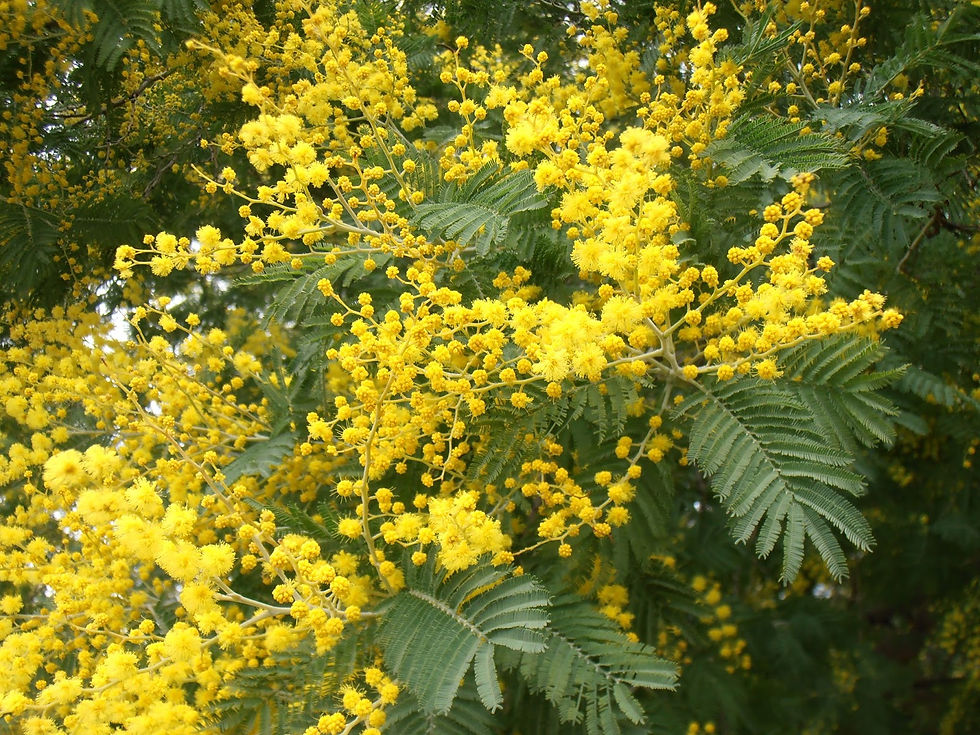Acacia Honey from Hungary
- Dina Maria
- Apr 16, 2025
- 3 min read
Updated: Jun 19, 2025
Acacia honey from Hungary is a unique and sought-after product, renowned for its distinct flavor profile and production methods. This honey is primarily sourced from the blossoms of the black locust tree, known scientifically as *Robinia pseudoacacia*, which is commonly found in various regions of Hungary, particularly in areas with rich, fertile soil and a favorable climate for the growth of these trees.
Annual Production
Premium Quality 10,000 - 15,000 kg

Production Process
The production of acacia honey in Hungary involves several meticulous steps:
Bee Foraging
Honeybees typically begin foraging for nectar from acacia flowers in late spring, usually around May. The flowers bloom for a short period, making the timing of the harvest crucial. Beekeepers often monitor the blooming cycles closely to ensure that their hives are positioned near acacia groves during this peak period.
Harvesting
Once the bees have collected the nectar, they return to the hive where they convert it into honey through a process of regurgitation and evaporation. The honey is then capped with beeswax, signaling that it is ready for harvest. Beekeepers carefully extract the honeycomb, ensuring minimal disturbance to the bees.
Processing
After extraction, the honey is typically filtered to remove any impurities, such as wax particles or bee debris. However, many Hungarian producers emphasize minimal processing to retain the natural qualities of the honey. It is then bottled, often in glass containers, to preserve its flavor and aroma.
Flavor Profile
Hungarian acacia honey is characterized by its light color, often ranging from pale yellow to almost colorless. The flavor is delicate and mild, with subtle floral notes that reflect the acacia blossoms from which it is derived. This honey is known for its smooth texture and a pleasant sweetness that does not overpower the palate.
Cultural Significance
In Hungary, acacia honey holds a special place in culinary traditions and local culture. It is often used as a natural sweetener in various dishes, including pastries, teas, and traditional Hungarian foods. Additionally, it is frequently offered as a gift during special occasions, symbolizing goodwill and hospitality.
Market and Availability
The market for Hungarian acacia honey is both local and international. It is often found in specialty food stores, farmers' markets, and online platforms. The demand for this type of honey has been growing, especially among consumers seeking high-quality, natural products. Hungarian acacia honey is often marketed with a focus on its artisanal production methods and the unique characteristics imparted by the local terroir.
Conclusion
Acacia honey from Hungary is a product steeped in tradition and craftsmanship. Its production process, flavor profile, and cultural significance contribute to its esteemed reputation both locally and abroad. As consumers increasingly seek out high-quality, natural sweeteners, Hungarian acacia honey continues to stand out as a premium choice.

Acacia natural organic honey is renowned for its delicate and mild flavor profile. It is characterized by:
Light Color: Typically, it has a pale, almost transparent hue, which is visually appealing.
Floral Notes: The flavor is subtly floral, with hints of acacia blossoms, giving it a sweet yet gentle taste.
Smooth Texture: It has a smooth and runny consistency, making it easy to pour and mix into beverages or food.
Less Intense Sweetness: Compared to darker honeys, acacia honey offers a milder sweetness that does not overpower dishes.
Lingering Finish: The aftertaste is pleasant and light, leaving a refreshing sensation on the palate.

Health Benefits of Acacia Natural Organic Honey
Rich in Antioxidants: Acacia honey is packed with antioxidants that help combat oxidative stress and protect the body from free radicals.
Soothing Properties: It has natural soothing properties that can help relieve sore throats and coughs.
Supports Digestive Health: The prebiotic properties of acacia honey can promote healthy digestion and gut flora.
Low Glycemic Index: Acacia honey has a lower glycemic index compared to other types of honey, making it a better option for those managing blood sugar levels.
Wound Healing: Its antibacterial properties can aid in the healing of minor wounds and burns when applied topically.
Boosts Immune System: Regular consumption can help strengthen the immune system and improve overall health.




Comments